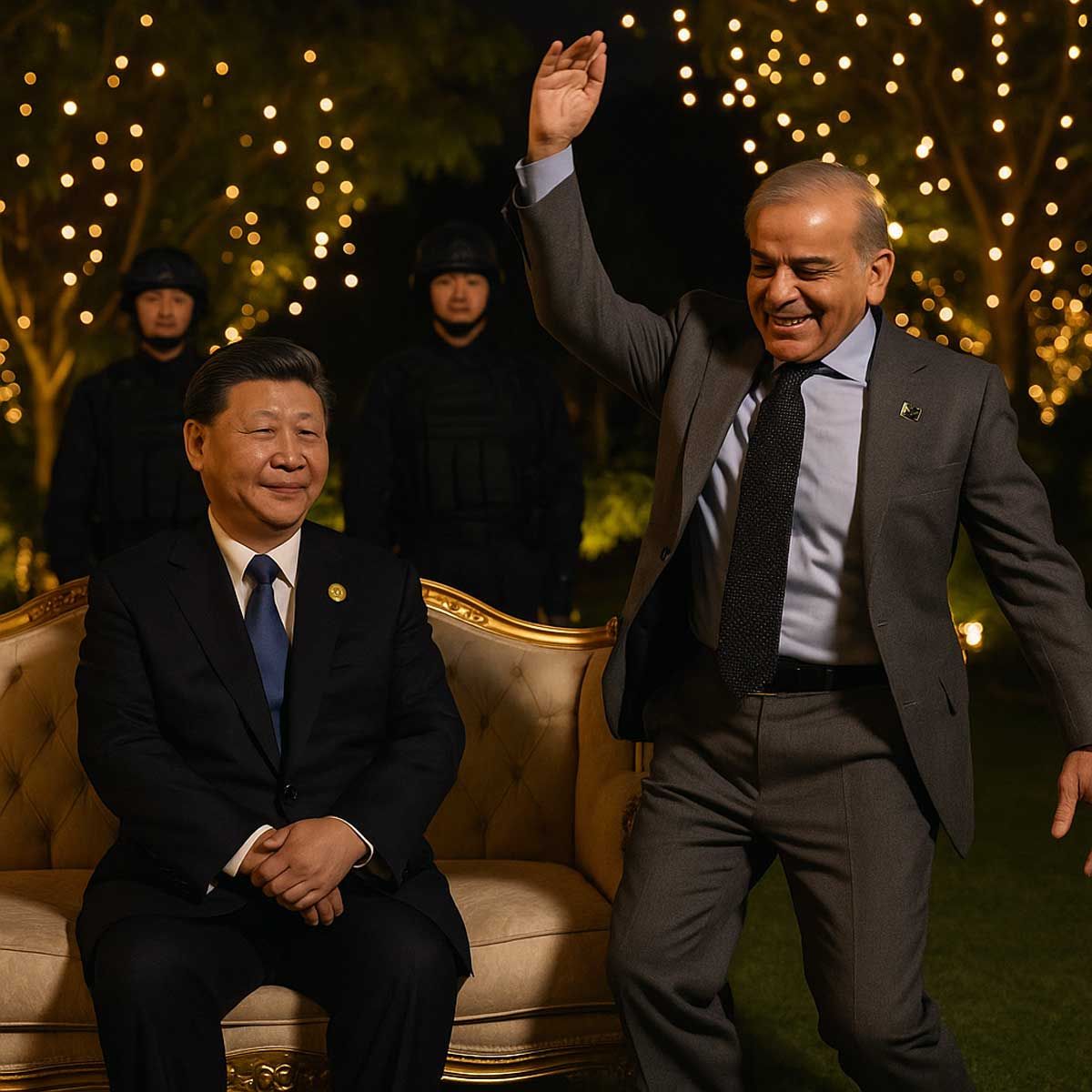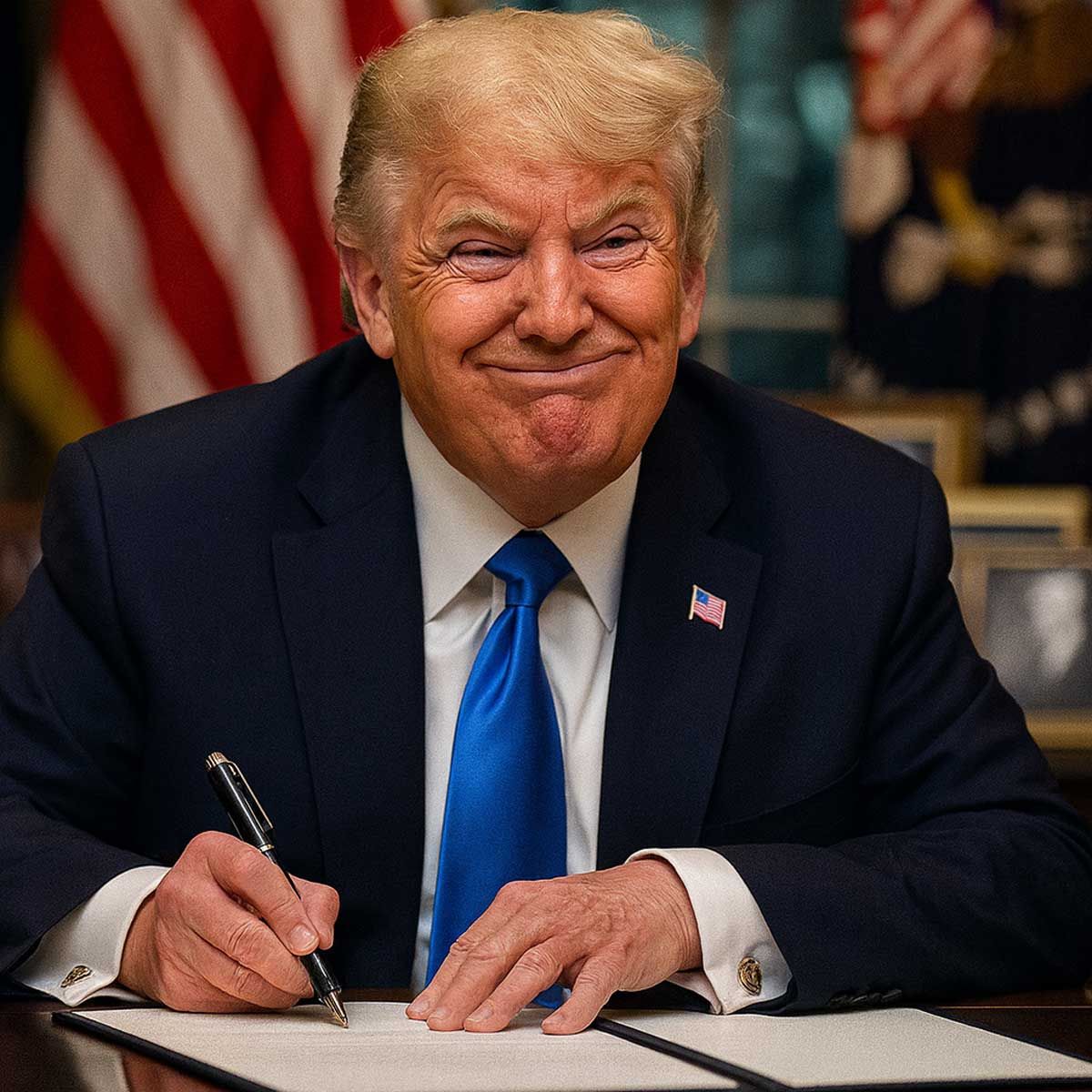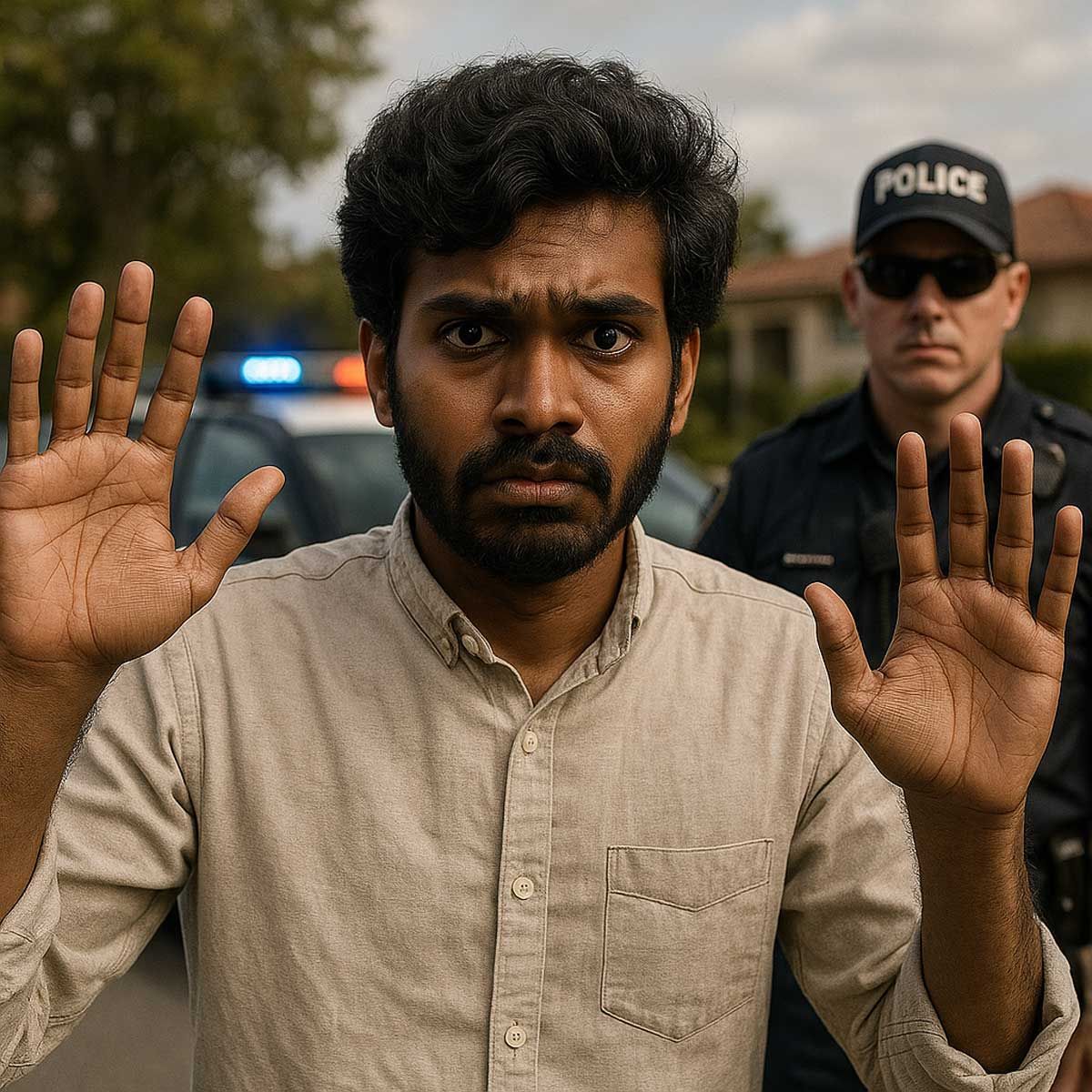Sanatan Articles
Satyaagrah
Written on
Satyaagrah
Written on
Satyaagrah
Written on
Satyaagrah
Written on
Satyaagrah
Written on
JOIN SATYAAGRAH SOCIAL MEDIA
Nehru lost election and became first Prime Minister of free India: All thanks to miraculous Gandhi
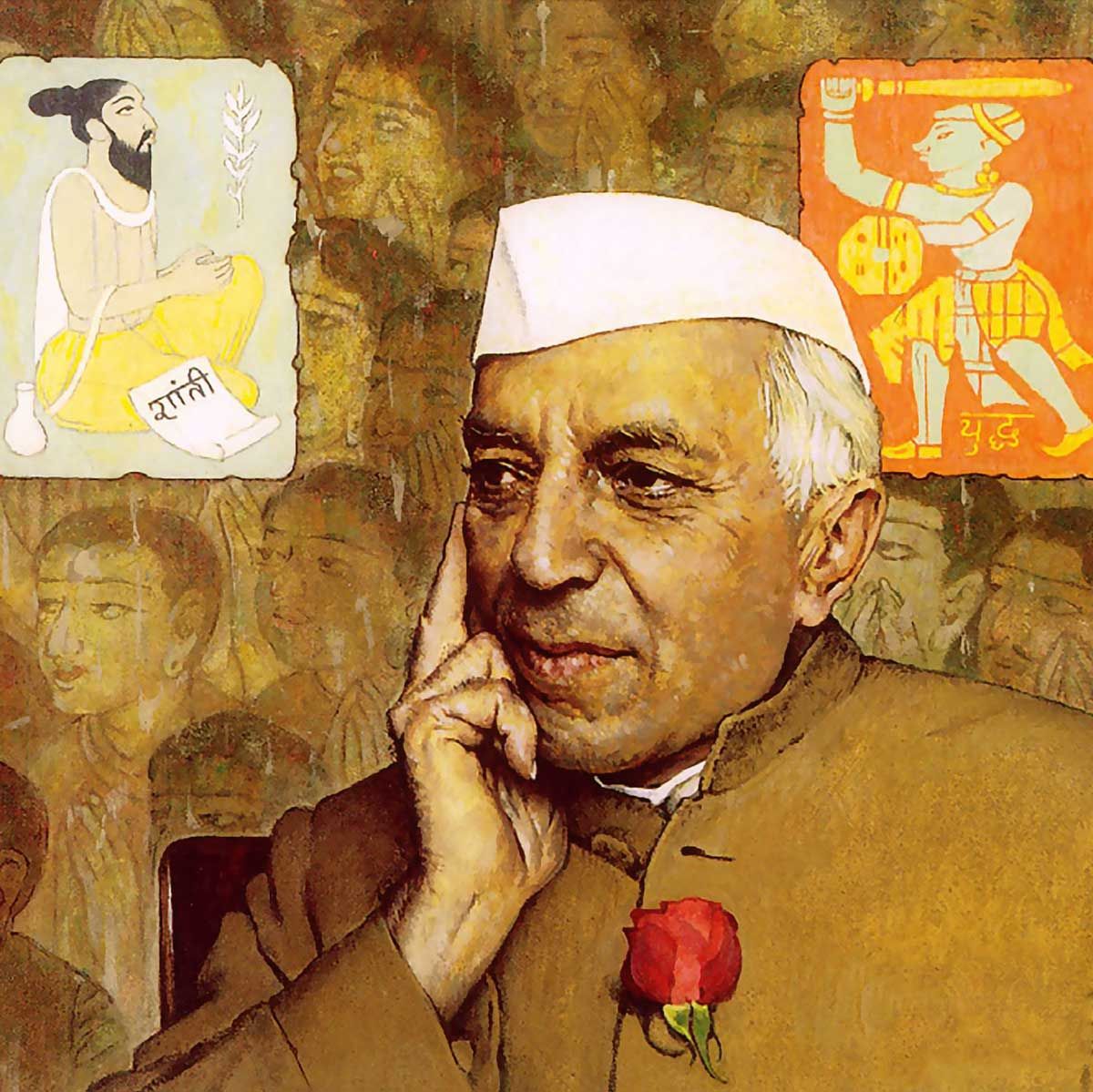
As India’s freedom struggle was approaching its culmination, Mohandas Karamchand Gandhi made his intentions clear that Indian National Congress (INC) should be dissolved. He felt the objective of the INC was to liberate India from British rule; once that goal was accomplished, the organization had no existential purpose. Gandhi proposed that all leaders who desired public service via electoral politics should form their own political party and contest elections. This actually would have been democracy in the real sense.
It is interesting to consider the possible outcomes of such an idea.
Perhaps Nehru would have been rejected by the people, which probably would have been the end of his political journey of the dynasty. Perhaps Sardar Patel would have been India’s first Prime Minister. Perhaps a newer relatively unknown face would have emerged as the nation’s leader following a fractured mandate.
 |
However, Nehru and others within the party understood that the INC had brand recognition such that they could ride the wave of goodwill earned by the party during the freedom struggle. Challengers could be implicitly or explicitly branded as a traitor for challenging the founding fathers of free India. Hence, Gandhi’s advice was conveniently ignored and the INC prevailed.
However, Gandhi’s advice was assiduously followed in another matter. In 1946, an internal election was held to decide the President for the INC would eventually become the first Prime Minister of independent India. Among the candidates were Jawaharlal Nehru, Acharya Kripalani, and Sardar Patel.
The INC working committee and the various state committees had to send in nominations for their preferred candidates. From the very beginning, Gandhi openly favoured Nehru. Gandhi had explained his rationale behind backing Nehru ‘Jawaharlal cannot be replaced today whilst the charge is being taken from the British. He, a Harrow boy, a Cambridge graduate, and a barrister, is wanted to carry on the negotiations with the Englishmen.‘
Gandhi also felt that Nehru was better known abroad and could help India play a role in international affairs. Even Maulana Azad endorsed Nehru three days before the last date of nomination. He wrote in his autobiography, published posthumously in 1959: “After weighing the pros and cons I came to the conclusion that the election of Sardar Patel would not be desirable in the existing circumstances. Taking all facts into consideration it seemed to me that Jawaharlal should be the new President….”
The results showed that the members of INC had a drastically different opinion. Sardar Patel who was known to be a great executive, organizer, and leader, won 12 out of 15 state committees, the other state committees abstained from the process. Nehru did not receive any nominations. This was a unanimous choice for Patel while Nehru was resounding rejected. Sardar Patel was on his way to becoming India’s first Prime Minister.
 |
When Gandhi conveyed the results to Nehru, instead of humbly accepting the popular mandate, Nehru’s reaction was that of total silence. Gandhi realized that while that Patel would agree to work as Nehru’s deputy, the reverse would most certainly not happen. Thus Gandhi intervened and asked Patel to withdraw his nomination.
There is no denying the fact that Gandhi had a ‘soft corner' for Nehru since beginning and he had preferred Nehru over Sardar Patel at least twice before 1946 for the post of Congress president. It happened in 1929 as well as in 1937.
Gandhi was always impressed with the modern outlook of Nehru. In comparison to Nehru, Sardar Patel was a little orthodox and Gandhi thought India needed a person who was modern in his approach.
But more than anything, Gandhi always knew that Sardar Patel would never defy him. He was not so convinced about Nehru. Gandhi's apprehensions came true when Nehru made it clear to him that he was not willing to play second fiddle to anybody. Perhaps, Gandhi wanted both Nehru and Patel to provide leadership to the country. He used his veto power in favour of Nehru because he feared Nehru could cause problems in the way of India's independence if he was not given the chance to become Prime Minister.
 |
Some analysts have also claimed that Nehru threatened to split the Congress in case he was not made prime Minister. According to these analysts, Nehru coerced Gandhi into supporting him by saying that if he split the Congress, the entire independence plan would go awry as the British would get an excuse in delaying independence by raising the question as to who should be handed over the reins of power, Congress with Nehru or Congress minus Nehru.
Gandhi unwittingly introduced the anti-democratic culture of the ‘party high commands’ overruling state units for inter-party matters. In deference to Gandhi, Kripalani nominated Nehru and withdrew from the contest. Patel who regarded Gandhi as his mentor then willingly stepped aside in favour of Nehru. Such a supreme sacrifice is unthinkable in contemporary times.
There were two major reasons why Patel accepted Gandhi’s request. Firstly, unlike Nehru, he never had coveted positions or posts, for him satisfaction was solely derived in his service to the nation. Secondly, Patel also knew that Nehru was not one to take rejection well. He had an inkling that Nehru would probably reject playing deputy to Patel and in fact become a fierce opponent of Patel and an impediment as he governed the nation.
He knew Nehru had his myriad supporters who would also join his faction of opposing Patel. Patel understood that this division between him and Nehru would further divide a nation that was already plagued with various problems and was about to undergo an almost cataclysmic partition.
Dr. Rajendra Prasad later remarked: ‘Gandhi has once again sacrificed his trusted lieutenant for the sake of the glamorous Nehru.‘ Prasad’s usage of “once again” was owing to the Patel was denied the presidency of the INC in 1929, 1937, and 1946 in preference to Nehru and this change always occurred the last moment.
Nehru was hence ‘elected’ unopposed and his path was cleared as India first Prime Minister. Maulana Azad later changed his opinion about his previous endorsement of Nehru “It was a mistake on my part that I did not support Sardar Patel. We differed on many issues but I am convinced that if he had succeeded me as Congress President he would have seen that the Cabinet Mission Plan was successfully implemented. He would have never committed the mistake of Jawaharlal which gave Mr. Jinnah an opportunity of sabotaging the Plan. I can never forgive myself when I think that if I had not committed these mistakes, perhaps the history of the last ten years would have been different.”
Michael Brecher wrote in his commendatory biography of Nehru wrote: “In accordance with the time-honoured practice of rotating the Presidency, Patel was in line for the post. Fifteen years had elapsed since he presided over the Karachi session whereas Nehru had presided at Lucknow and Ferozpur in 1936 and 1937. Moreover, Patel was the overwhelming choice of the Provincial Congress Committees…. Nehru’s ‘election’ was due to Gandhi’s intervention. Patel was persuaded to step down….“If Gandhi had not intervened, Patel would have been the first de facto Premier of India, in 1946-47. The Sardar was ‘robbed of the prize’ and it rankled deeply.”
C. Rajagopalachari, who wrote in Bhawan’s Journal in 1972, “Undoubtedly it would have been better if Nehru had been asked to be the Foreign Minister and Patel made the Prime Minister. I too fell into the error of believing that Jawaharlal was the more enlightened person of the two. A myth had grown about Patel that he would be harsh towards Muslims. This was a wrong notion but it was the prevailing prejudice.”
According to this official history, Jawahar Lal Nehru was elected as the first Prime minister of India and Sardar Patel became his deputy and it was all done purely on merit.
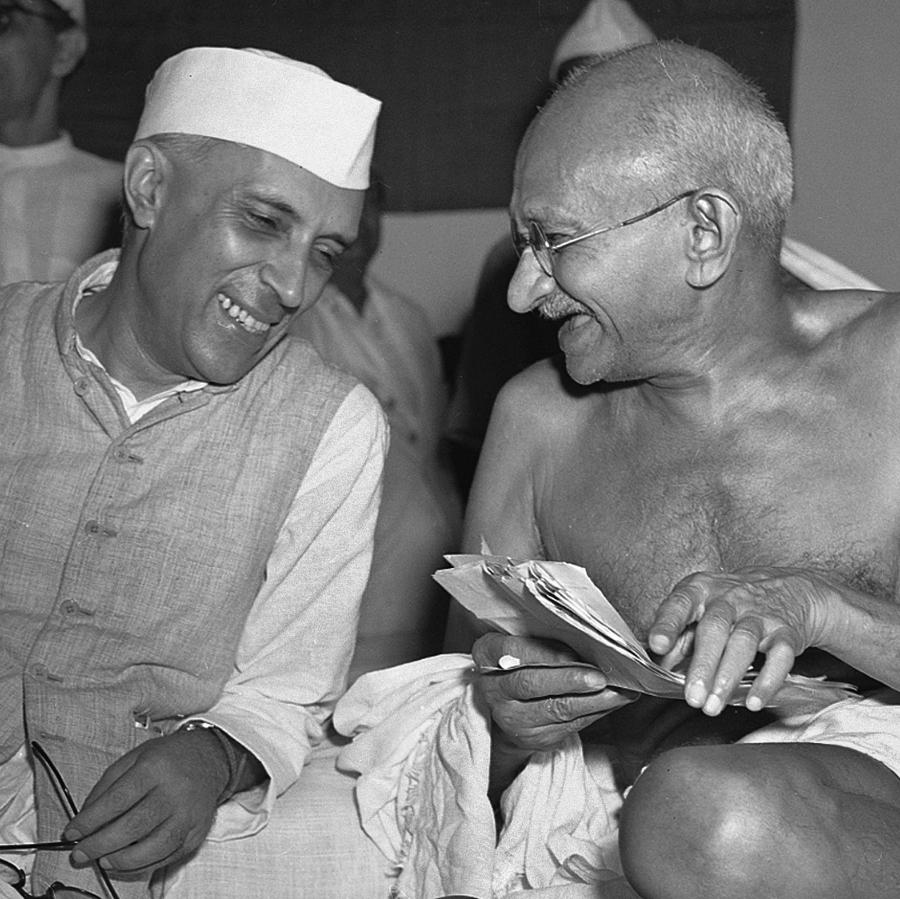 |
The official history has always downplayed the grave injustice that was done to the ‘Iron Man of India' – Sardar Vallabh Bhai Patel. It's not that the official history does not mention the emergence of Sardar Patel and not Jawahar Lal Nehru as the overwhelming choice of the Congress party to lead India after independence but it has been reduced to mere footnotes and nothing more.
But Gandhi's decision proved too costly for the nation. Nehru's follies on Kashmir and China proved beyond doubt the fact that Gandhi committed a mistake in backing Nehru by showing utter disregard to overwhelming support from the majority of PCCs for Sardar Patel.
Even two known critics of Sardar Patel conceded the point that Gandhi's decision to chose Nehru over Patel was erroneous.
Patel passed away in 1950 and in 1952, INC secured a massive majority in free India’s very first election. Nehru remained India’s prime minister and continued to be prime minister till his last breath. It is sad, unfortunate, and scandalous that the very first election that would decide the leader of free India was manipulated. It wasn’t only the election but the future of India that was rigged.
References:
indiatvnews.com - Raj Singh
opindia.com - Rajan Laad
 Support Us
Support Us
Satyagraha was born from the heart of our land, with an undying aim to unveil the true essence of Bharat. It seeks to illuminate the hidden tales of our valiant freedom fighters and the rich chronicles that haven't yet sung their complete melody in the mainstream.
While platforms like NDTV and 'The Wire' effortlessly garner funds under the banner of safeguarding democracy, we at Satyagraha walk a different path. Our strength and resonance come from you. In this journey to weave a stronger Bharat, every little contribution amplifies our voice. Let's come together, contribute as you can, and champion the true spirit of our nation.
 |  |  |
| ICICI Bank of Satyaagrah | Razorpay Bank of Satyaagrah | PayPal Bank of Satyaagrah - For International Payments |
If all above doesn't work, then try the LINK below:
Please share the article on other platforms
DISCLAIMER: The author is solely responsible for the views expressed in this article. The author carries the responsibility for citing and/or licensing of images utilized within the text. The website also frequently uses non-commercial images for representational purposes only in line with the article. We are not responsible for the authenticity of such images. If some images have a copyright issue, we request the person/entity to contact us at This email address is being protected from spambots. You need JavaScript enabled to view it. and we will take the necessary actions to resolve the issue.
Related Articles
- Father of the Nation! Absolutely not. Mohandas Karamchand Gandhi was not the father of the nation either officially or otherwise
- If not for Muslim appeasement, Vande Mataram would have been India's National Anthem: the history of Muslim opposition and support
- Northeast is not the Part of Pakistan because of 'Netaji': Subhas Bose and the ‘special’ case of Assam
- Vinayak Damodar Savarkar – A Misunderstood Legacy
- Speech of Sardar Patel at Calcutta Maidan in 1948 busts the myth of ‘Muslims chose India’ and is relevant even today
- A Great man Beyond Criticism - Martyrdom of Shaheed Bhagat Singh (Some Hidden Facts)
- Gandhi emphasized that he won't salute Indian National Flag if Charkha is replaced by Ashoka Chakra and wanted British flag added to it
- Godse's speech and analysis of fanaticism of Gandhi: Hindus should never be angry against Muslims
- Ghost from the past: Unseen picture of Nehru voting in favour of partition of India goes viral
- Moplah Genocide of the Malabar Hindus, 1921: Thousands of Hindus slaughtered
- Anuj Dhar claims that Subhas Chandra Bose was suspected of being ‘poisoned’ after ouster from the post of Congress president
- Tragedy or Drama: Mufti Mohammad Sayeed's daughter Rubaiya abduction led to free five most notorious terrorists
- Was Italian family of Sonia Gandhi involved in the Bofors scam: Papers long buried, questions that were never asked
- Mysterious death of Pandit Deen Dayal Upadhyaya, whose growing popularity was a threat to Congress
- Nehru's Himalayan Blunders which costed India dearly - Integration of Princely States












